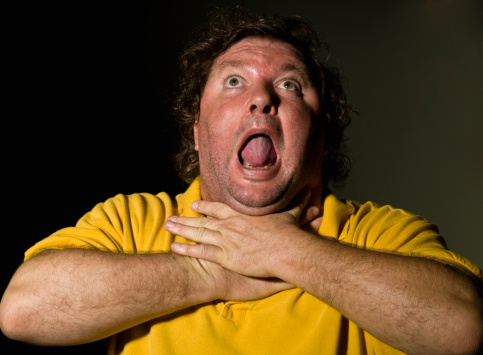
Can You Vacuum Someone to Save Them From Choking?
You may imagine using a vacuum cleaner to save someone from choking. After all, a vacuum cleaner sucks dirt and debris, so it may be able to suck the food stuck inside a person’s throat.
While there is one recorded incident in Japan where an 80-year old man was saved by a vacuum cleaner, you should think twice about using a home appliance to save someone from choking. Read on to learn why.
Can you vacuum someone to save them from choking?
Do not even think of using a vacuum cleaner to try to save someone from choking. Here’s why:
- A vacuum cleaner will take the last bit of air out of their lungs, and a choking victim is already starving for air.
- Putting something into their mouth will make the victim vomit and this will make things exponentially worse.
- The vacuum could damage the victim’s trachea making things worse.
Emergency Medical Services (EMS) may have suction devices, but it is important to know that these devices take air away from a person that is already low on oxygen.
When an EMS operative uses them, they try to oxygenate the patient before applying suction. The suction process is done for as long as someone could hold their breath (ideally shorter). The suction catheter only goes into the mouth as far as the rescuer can see — no further.
What to do instead of a vacuum cleaner
For a choking victim — you do the Heimlich maneuver while they are conscious and upright. When the choking victim collapses, you switch to CPR compressions until the object is dislodged. Then you tilt the person on their left side to let gravity take it out.
The Heimlich Maneuver (or CPR if required) are both simple and require nothing more than a pair of hands. It is much safer than running off to get a dangerous machine, like a vacuum cleaner, which you have no experience in (mis)using as a medical device to save someone’s life.
What happens if you put a vacuum in your mouth?
While a vacuum cleaner can potentially dislodge a delicious rice treat, it would also carry the risk of lung hemorrhage. In simpler terms, it is damage to a large blood vessel or the brachial artery.
Not only would it be fatal, but the damage caused by misusing a vacuum cleaner would also require some serious draining and immediate open-thoracic surgery for just a slim chance at survival.
If suction is sustained with a not-fully-occluded airway, it would also disrupt blood-gas exchange, and would either asphyxiate or lead to CO2 intoxication, both of which are fatal, especially when you factor in all the ‘potential’ damage to the vascular and lymphatic vessels in the lungs.
Articles you might like:
